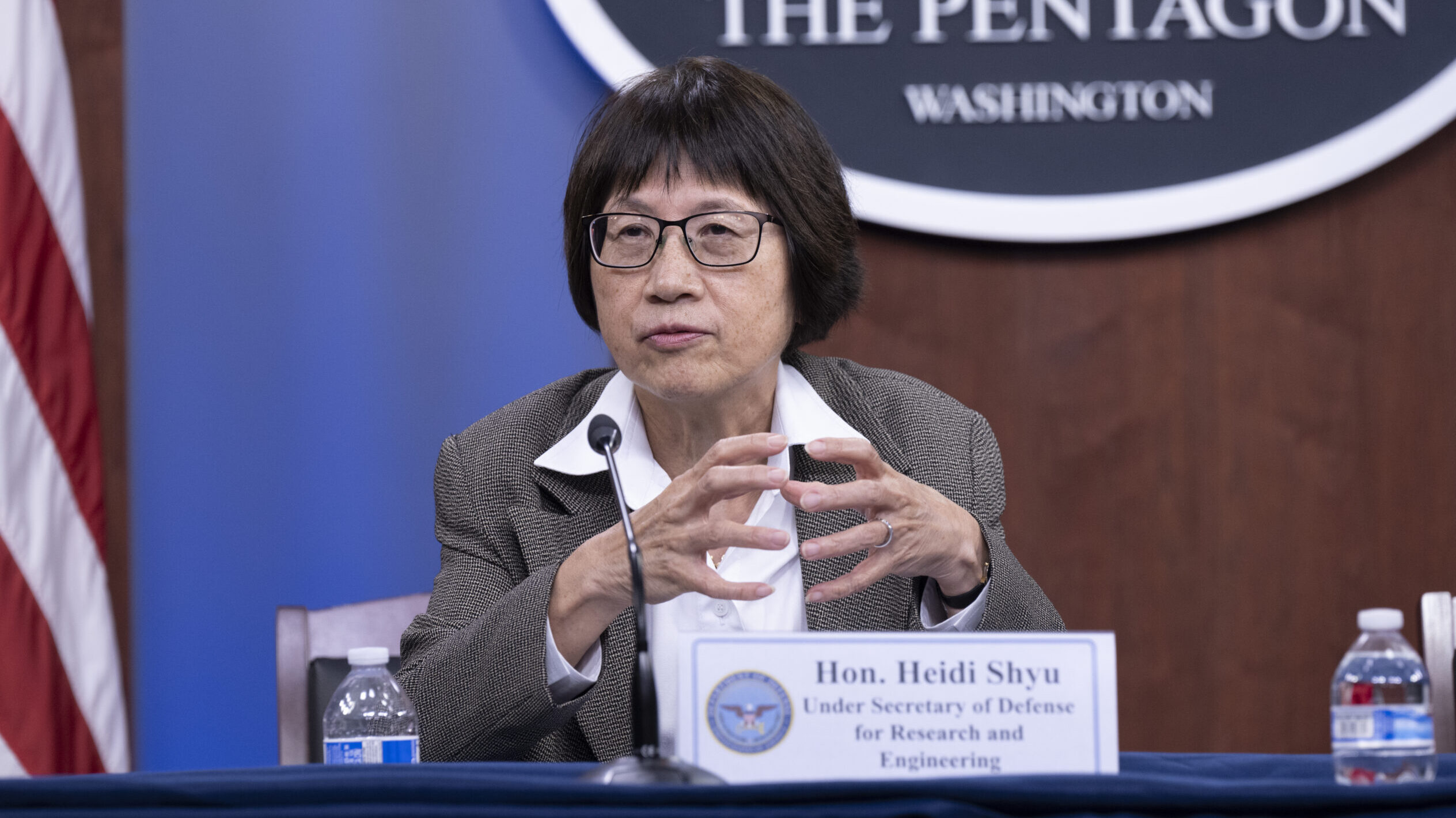JASPREET GILL

WASHINGTON — The Pentagon will soon begin weighing which of the first capabilities born out of its two-year-old Rapid Defense Experimentation Reserve (RDER) will be funded and fielded to the military services, the department’s chief technology officer spearheading the effort said today.
Defense Management Acquisition Group (DMAG), a four-star board that includes representation from all military services, combatant commands and the joint staff, will meet later this fall to go over “a list of projects” that are mature and ready to go into fielding, Heidi Shyu, under secretary of defense for research and engineering, told reporters, though she didn’t say which projects would be under consideration.
Parts of RDER experiments were done at Camp Atterbury, Ind., in May this year and during this summer’s Northern Edge experiments. Those capabilities that proved to be useful will be presented at the DMAG meeting, Shyu said.
She added that two military services — the Army and Air Force — asked to be the lead agents on one specific RDER capability. And although she didn’t divulge details about what RDER project it would be, Shyu said the move “shows a demand signal that there’s interest” in the outcomes of the effort.
“So the decision at the DMAG will be, should that be a single service, or [does] every service just buy what they want, right?” Shyu told reporters at the National Defense Industrial Association’s Emerging Technologies for Defense conference.
“Because if you group it into one lead service, maybe you want to buy 50, he wants to buy 100, you want to buy three, but you’re going to pay for different price points, right?” she added. “If you lump it together to provide the service… it’s like going to Costco, right? Buying [in] bulk.”
For the past two years, Shyu’s team has been planning and experimenting with emerging technologies through RDER to address DoD’s capability gaps and deliver them more quickly to warfighters. Shyu has previously said her office is planning to do two “sprints” of the effort each year, starting with the area of long-range fires in the Indo-Pacific region.
For those capabilities approved by DMAG, the next question is their future funding. Shyu said that will depend on ”the current year authorization” and if DoD has the budget for it. She added that during the first set of RDER “sprints,” her office knew there was a high likelihood of a continuing resolution. DoD requested $687 million for RDER in fiscal 2024, almost double what it requested in FY23.
“We’re hoping that after the first one, we demonstrate success [and] the Hill will understand and get going,” she added.
No comments:
Post a Comment